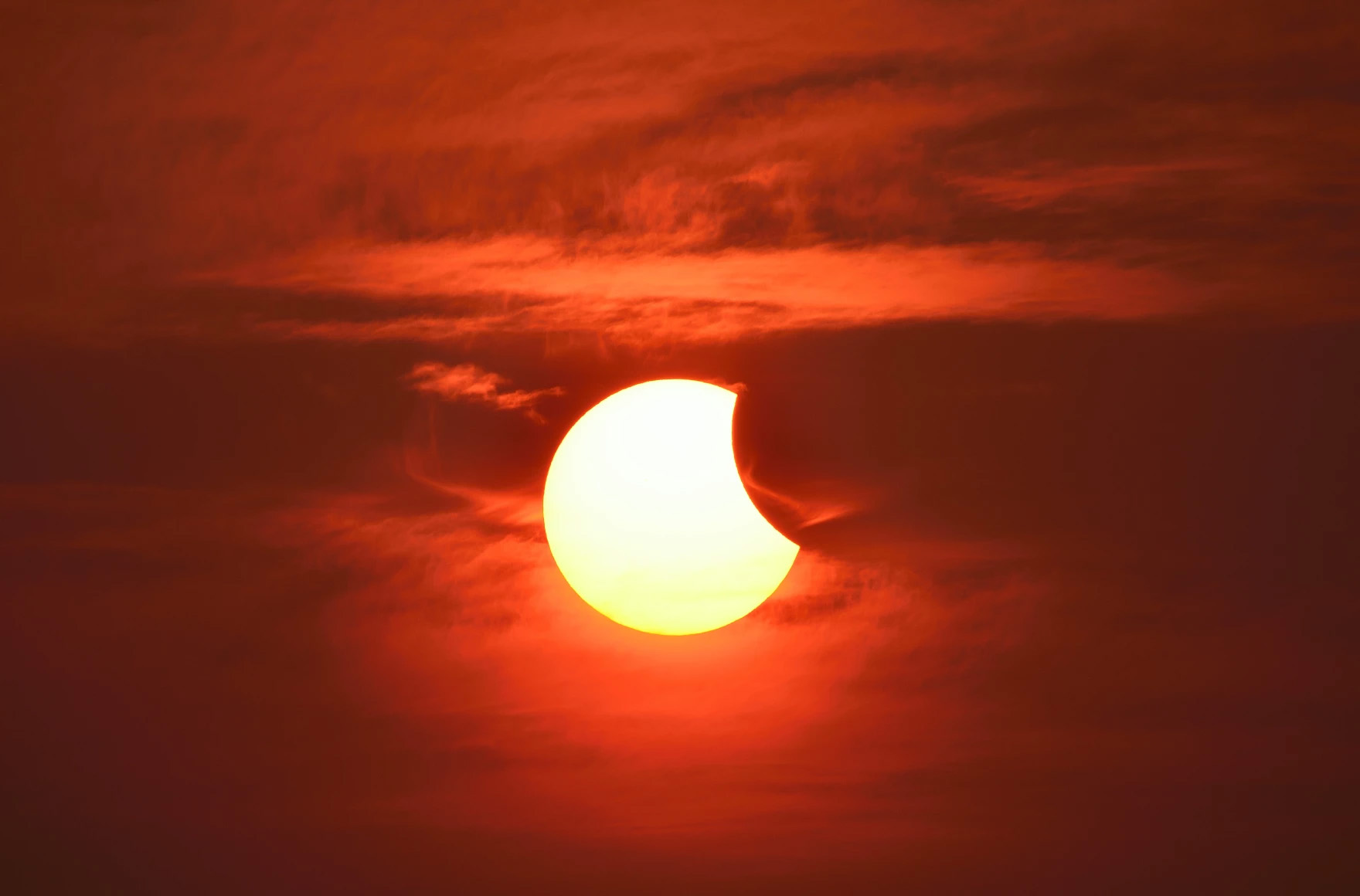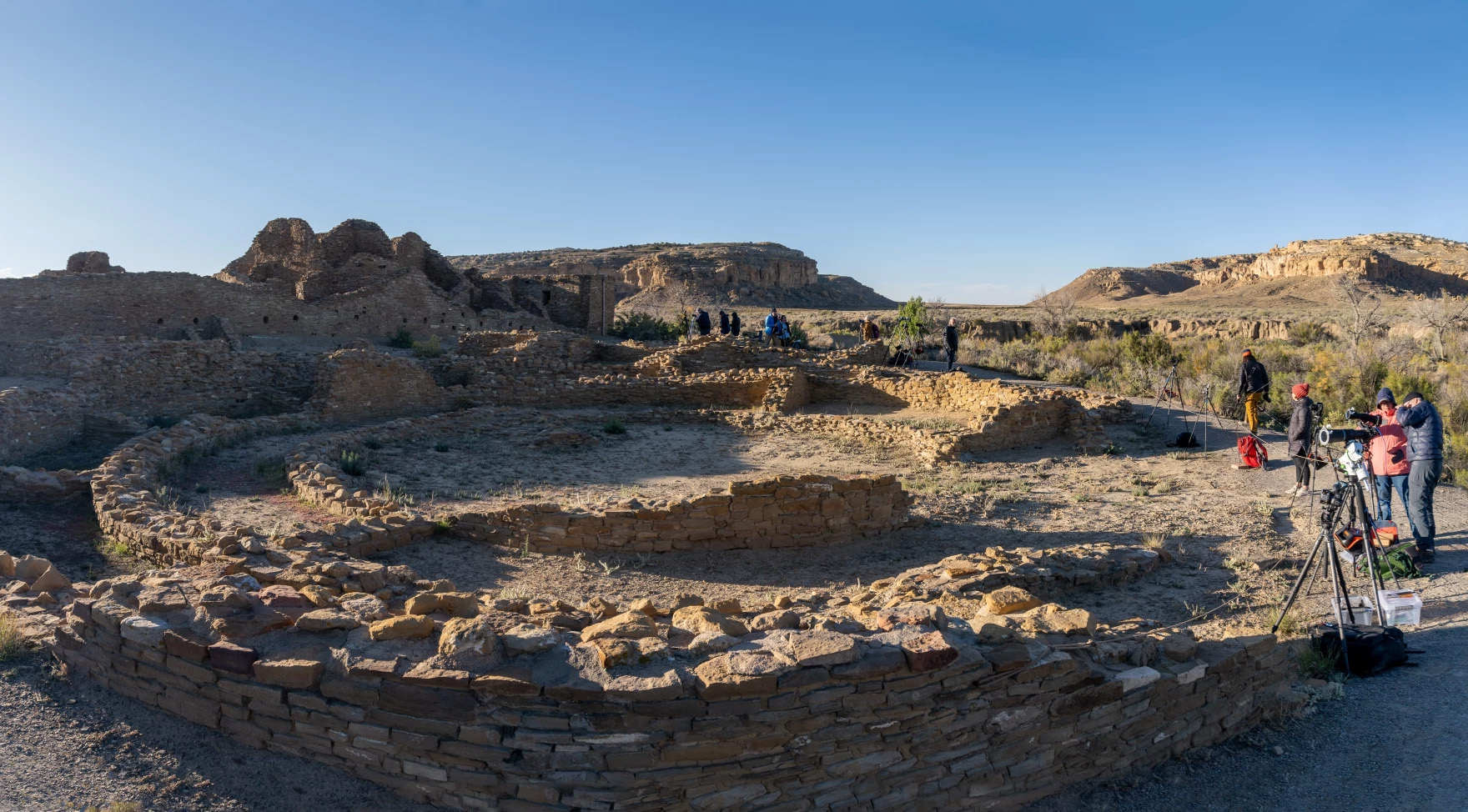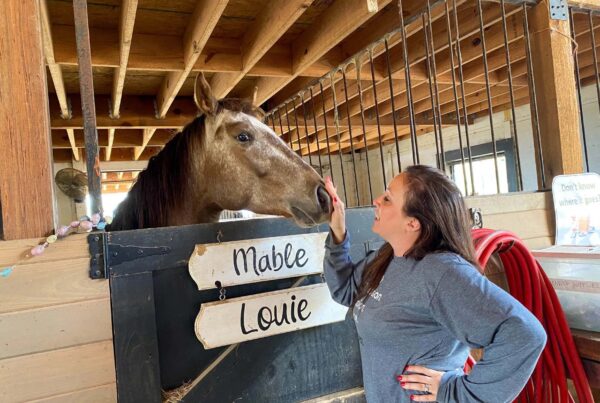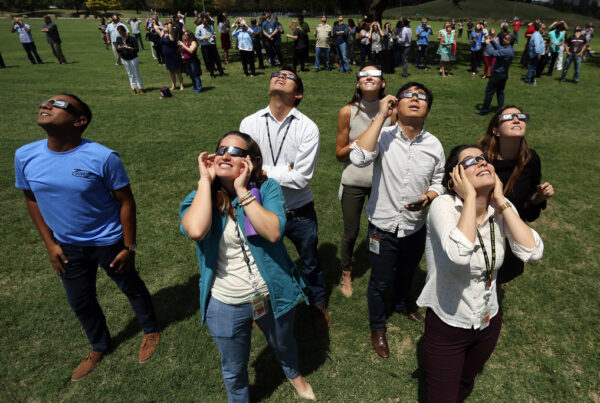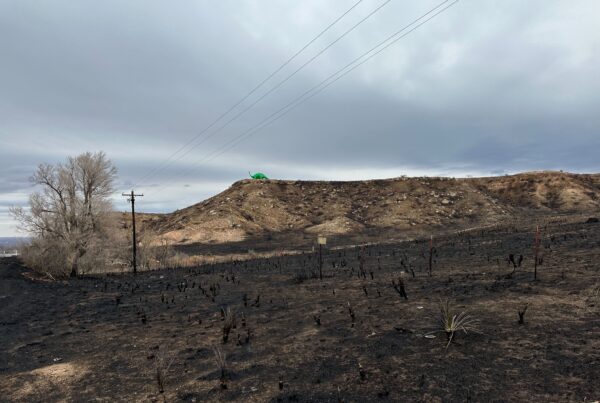From KERA News:
Even if you’ve heard more than enough about it, viewing the total eclipse that’s coming April 8 — some psychologists say — may be a life-changing experience.
Well, for a while, at least.
The experience they’re talking about is “awe.” It’s that encounter we have with something so immense or so new and different, we have difficulty processing it. In this information-jaded age, awe may seem hard to come by. We’ve seen it all – except, perhaps, the next digital marvel going on sale.
But all it takes is a river bursting through its banks or the birth of a child for us to be reduced to that same sense of wonder.
That sense has actually been the subject of serious scientific research and speculation for years. Dacher Keltner, a psychology professor at Berkeley, is considered something of the “father” of awe studies. He wrote last year’s bestseller, “Awe: The New Science of Everyday Wonder and How It Can Transform Your Life.”
But, Sean Goldy noted, much of the research on awe had been done in the lab – with maybe a half-dozen test subjects for each experiment. Goldy is a postdoctoral fellow at Johns Hopkins University, and he said lab experiences like that are not exactly what people mean when they talk about awe.
Tabulating the awe
So Goldy and his team ran a large-scale social media experiment in 2017 during our previous Great American Eclipse. They used computers to track millions of Tweets before, during and after the eclipse – tweets made by people who were directly in the eclipse’s path.
A computer then filtered the Twitter feeds for certain phrases and words. What Goldy found – no surprise – is that many people were awe-struck. But their surprise had other feelings tagging along, which is what Goldy was actually looking for.
People felt closer to others, Goldy said, during and after the eclipse. They felt humbled. They wanted to help people. Expressions of anger decreased in the Tweets, while expressions of empathy increased. “I” was used less often and “we” more often.
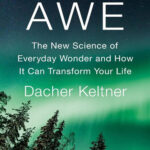
“Awe is this emotion people feel when they come across something mind-blowing or unexpected,” said Goldy. “And by virtue of having them focus a little bit less on themselves, awe seems to open people up to focusing more on the world around them, especially others. So as people become more socially connected, they can become more generous, compassionate.”
Goldy’s Twitter-feed experiment gathered a lot more data in support of this thesis, gathered it more or less in real time – with people experiencing something “in the real world.”
The results he and his team found – about how awe seems to make people feel more open, more connected – make sense, considering what we often experience during major concerts, musicals or sporting matches. Goldy noted that such public events often use special effects and giant video screens to amplify what can already be a breathtaking experience. Everything is cranked up to be bigger, brighter, louder.
At such moments, we become a single audience, we’re flooded with the same wonderment as those around us. Many people attend outdoor concerts or go to ballparks during eclipses to experience precisely this communal, cosmic effect.
But remember: In 2017, Goldy’s online test subjects were contemporary Americans. These were people who knew in advance the eclipse was coming. Presumably, they knew some basic science, knew what an eclipse was, knew that the darkness was simply the moon’s shadow.
And presumably, they didn’t subscribe to the ancient Nordic idea that an eclipse happens when the sun is eaten by a giant sky wolf named Sköll.
Yet none of that mattered for many of the Tweeters. They were as awestruck as any medieval Norseman.
“I remember a young woman coming up to me after one of these eclipses, tears streaming down her face,” said Anthony Aveni about an event on an “eclipse cruise” he once took. Aveni is a retired astrophysicist and cultural anthropologist at Colgate University. He’s the author of “In the Shadow of the Moon,” a study of human responses to eclipses throughout history and across different cultures. Aveni used to lecture about eclipses on such cruises.
“And I remember the young woman saying, ‘Professor, you may have given us all the science of eclipses, but to me, it was a miracle.’”
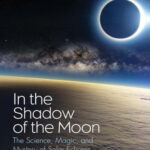
Aveni argued that modern Westerners often discount our predecessors’ responses – as well as those of other cultures – because we put our faith in what he called “the theory of progress.” We have the science and technology, they don’t.
“So, of course,” Aveni said, “they were in the dark — no pun intended.”
But you can be well-versed in meteorological science and still feel a sense of wonder when you see towering thunderheads command the sky.
In fact, Maria Monroy pointed out that the awe response is actually pretty consistent across cultures. Monroy is a postdoctoral associate in psychology at Yale who studied with Dacher Keltner. An awe experience may have elements of fear or surprise, she said. But ultimately, it is a specific response, evident even in our facial expressions.
“There’s this dropping of the jaw and then the widening of the eyes,” Monroy said. One theory holds that we’re trying to take in as much visual information as we can.
“But it also makes people feel different,” she said. “Physiologically, it’s completely different [from fear]. There’s evidence the autonomic nerve system [which governs our internal organs] calms down. The body calms down.”
Let’s get small
Awe or fear: We may feel overwhelmed by either, but it’s the difference between listening to Mozart’s Requiem or sitting through Saw III.
In particular, Monroy said, “there’s evidence that awe makes people feel small.”
It’s that smallness that makes us feel connected to our fellow humans. We all seem tiny compared to whatever vast experience we’ve just encountered.
So when the sun itself becomes a black hole in the sky, any differences with our fellow humans can appear trivial. We are all together on the same little rock drifting in space with only a little air, a little water.
Nancy Maryboy has a doctorate in indigenous science and is the founder of the Indigenous Education Institute. She spoke last month in San Antonio at a seminar on the eclipse for journalists. She noted there are 574 federally recognized Native American tribes, and each holds their own world views, each holds their own ways to live.
Maryboy is Navajo and explained the Navajo tradition with an eclipse is not to watch it but to stay inside, not to speak, not to eat. The Cherokee tradition, she said, is exactly the opposite – to go outside and make noise.
The Cherokee are trying to help the sun, she said, by scaring away the moon. The Navajo, meanwhile, feel the intersection of sun and moon should be treated with reverence. Despite the apparent differences, Maryboy said, each member of these tribes “lives with a personal knowledge of the interconnections of all things.”


